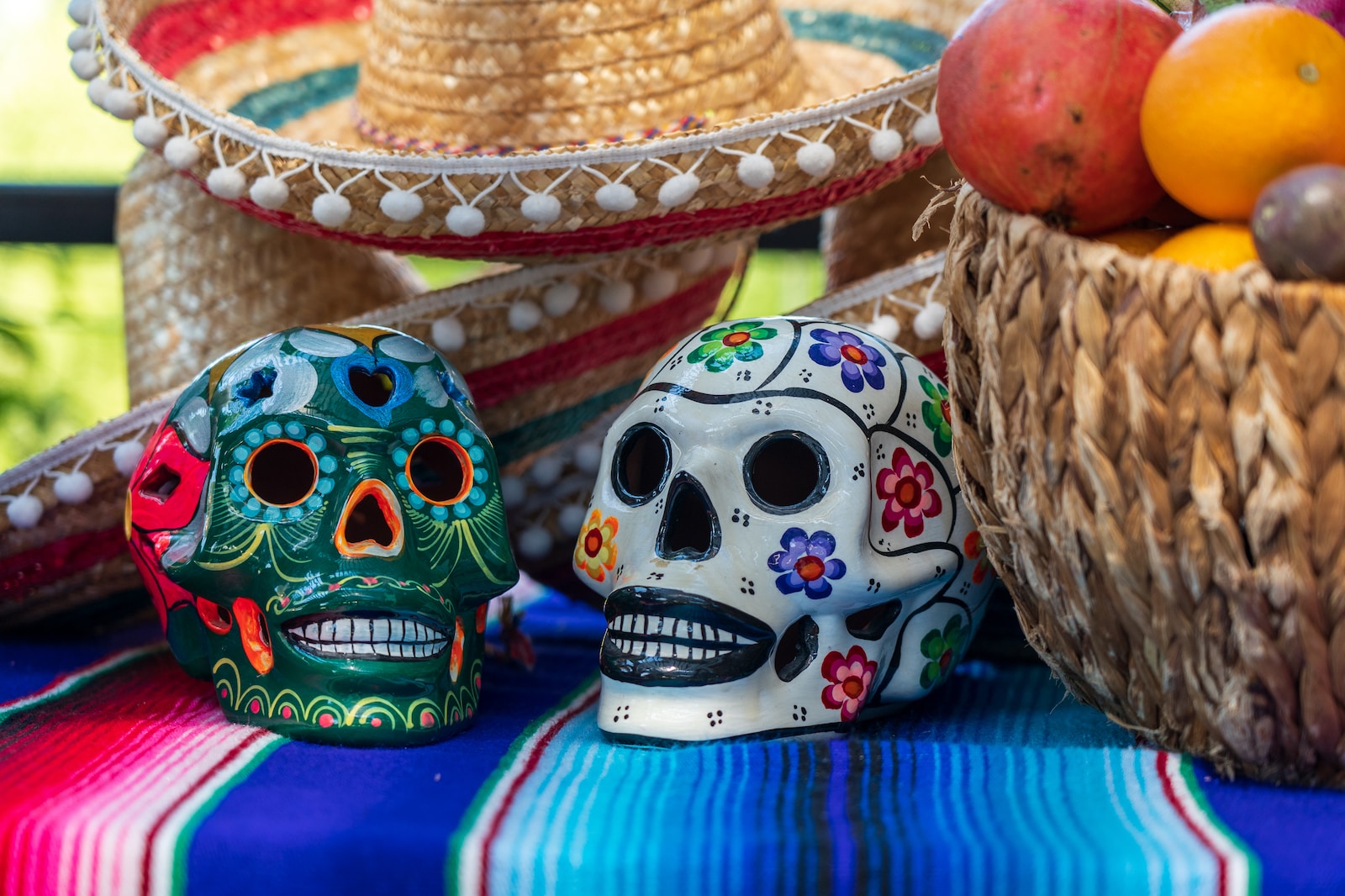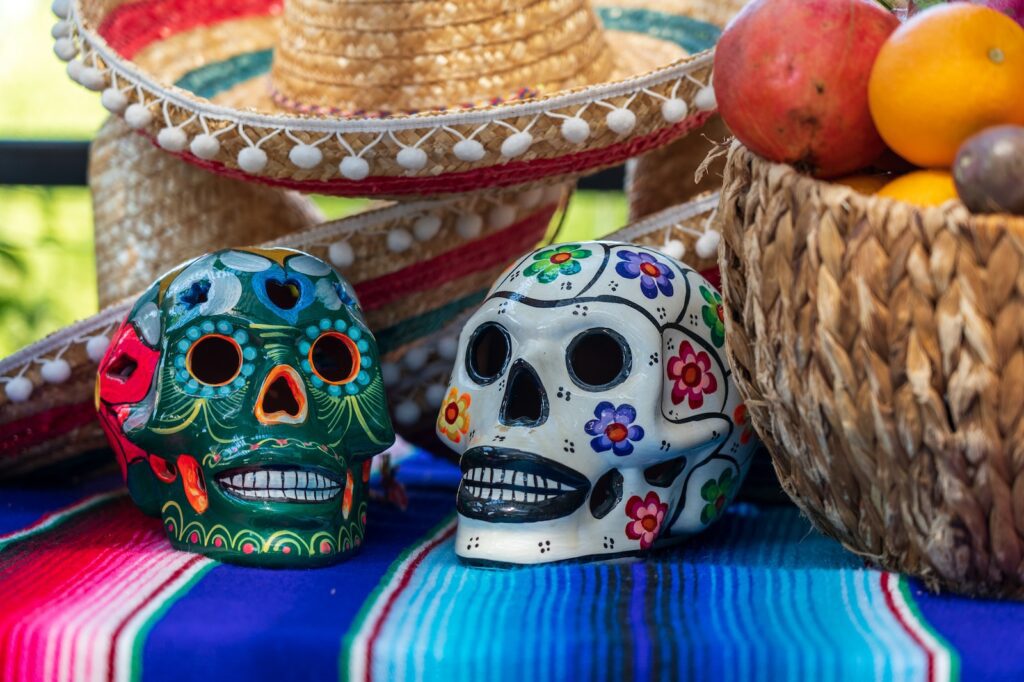
Oh, you won’t believe what we discovered! Turns out Spain has its unique way of honoring the departed. So, does Spain celebrate the Day of the Dead? Well, not exactly. Instead, they have All Saints’ Day, a grand celebration filled with rich history, customs, and festivities. Join us as we delve into the traditions Spain holds dear to honor their loved ones and uncover the differences between this vibrant holiday and the famous Day of the Dead.
Key Takeaways
- All Saints’ Day is celebrated in Spain, not the Day of the Dead.
- All Saints’ Day is a solemn day of remembrance and reflection honoring all saints, known and unknown.
- The traditions and customs of All Saints’ Day in Spain include visiting cemeteries, cleaning and decorating graves, lighting candles, and leaving flowers.
- Spain honors the deceased on All Saints’ Day by attending church services, sharing meals and memories of loved ones, and building altars at home.
History of All Saints’ Day in Spain
We’ve learned that the history of All Saints’ Day in Spain dates back centuries. All Saints’ Day, or Día de Todos los Santos, is celebrated on November 1st every year. It is a national holiday in Spain and is significant for the Spanish people. The origins of this holiday can be traced back to the Catholic Church, where it was established as a day to honor all the saints, known and unknown.
Table of Contents
In Spain, the celebration of All Saints’ Day is a time for families to come together and remember their loved ones who have passed away. It is a day of remembrance and reflection as people visit cemeteries to clean and decorate the graves of their ancestors. Flowers, candles, and pictures are placed on the graves to honor and remember them.
Celebrating All Saints’ Day in Spain is deeply rooted in the country’s culture and history. It is a time to respect those who came before us and keep their memory alive. The atmosphere during this day is reverence and solemnity as people gather to honor their deceased loved ones. It is a beautiful and meaningful way to remember and celebrate the lives of those who have passed on.
Traditions and Customs of All Saints’ Day in Spain
Let’s explore the customs and traditions of All Saints’ Day in Spain, where families gather in cemeteries to honor their ancestors and decorate their graves. It is a day filled with reverence and celebration as we remember and pay tribute to those who came before us.
- Floral Offerings: Families bring bouquets, most commonly chrysanthemums, to place on the graves of their loved ones. The vibrant colors symbolize life and beauty, while the flowers express love and respect.
- Candle Lighting: Candles are an integral part of the commemoration. The soft glow represents the eternal light and serves as a guiding beacon for the souls of the departed. Cemeteries are adorned with countless flickering candles, creating a serene and ethereal atmosphere.
- Family Gatherings: All Saints’ Day is a time for families to unite. Relatives gather at the cemetery to clean and decorate the graves, reminiscing about shared memories and stories of their ancestors. It is a day of unity and remembrance.
- Feasting and Festivities: Families often enjoy a meal together after paying their respects. Traditional dishes are prepared and shared, such as roasted chestnuts and panellets (almond-based sweets). It is a time to celebrate life and the bonds that connect generations.
- Religious Observances: Many families attend mass on All Saints’ Day, seeking solace and spiritual connection. Prayers are offered for the souls of the departed, and the church bells toll in remembrance.
All Saints’ Day in Spain is a beautiful and meaningful tradition where the past is honored and the present is cherished.
Differences Between Day of the Dead and All Saints’ Day in Spain
Although both Day of the Dead and All Saints’ Day are celebrated in Spain, there are distinct differences in their cultural and religious practices. While All Saints’ Day, also known as Todos los Santos, is a Christian holiday that honors all the saints and is celebrated on November 1st, Day of the Dead, or Dia de los Muertos, is a Mexican holiday that focuses on remembering and honoring deceased loved ones and is celebrated on November 2nd.
All Saints’ Day in Spain is a solemn occasion where families visit the graves of their loved ones, clean the tombstones, and leave flowers and candles as a symbol of remembrance. It is a day for prayer and reflection; many attend mass and participate in religious processions.
On the other hand, the Day of the Dead in Spain has a more festive and colorful atmosphere. Families set up altars, called ofrendas, in their homes, adorned with photographs, favorite foods, and belongings of the deceased. They believe that the spirits of their loved ones will visit and enjoy these offerings. People also visit cemeteries and decorate the graves with marigold flowers, candles, and colorful papel picado.

How Spain Honors the Deceased on All Saints’ Day
How do families in Spain honor their deceased loved ones on All Saints’ Day? Well, I’d like to tell you all about it. On this particular day, families in Spain come together to pay tribute to their departed loved ones in various ways. Here’s how we honor them:
- Visiting the graves: Families visit the cemeteries where their loved ones are buried. They clean the graves, place fresh flowers, and light candles to show their respect and love.
- Attending church services: Many families attend special Masses in churches across Spain. These services offer prayers for the souls of the departed and comfort the grieving families.
- Decorating the graves: It is a common tradition to decorate them with colorful wreaths, pictures, and other mementos. This is done as a way to remember and celebrate the lives of the deceased.
- Sharing meals: After visiting the graves, families often gather for dinner, sharing stories and memories of their loved ones. It is a time for bonding and reminiscing.
- Offering prayers and remembrance: Families take a moment to say prayers for their departed loved ones, reflecting on their lives and the impact they had. It is a solemn and meaningful way to honor their memory.
All Saints’ Day in Spain is a time for families to come together, remember their loved ones, and find comfort in each other’s presence.
Festivities and Celebrations on All Saints’ Day in Spain
We participate in several festivities and celebrations on All Saints’ Day in Spain, including visiting the graves, attending church services, decorating the tombs, sharing meals, and offering prayers and remembrance for our departed loved ones. All Saints’ Day, or “Día de Todos los Santos,” is a special day to honor and remember our deceased family members and friends. It is a time when we come together as a community to pay our respects and show our love for those who have passed away.
One of the main traditions on All Saints’ Day is visiting the graves of our loved ones. We gather at the cemetery and bring flowers, candles, and other decorations to adorn the graves. Seeing the graveyard transformed into a colorful and peaceful place filled with the memories of those we have lost is a beautiful sight.
In addition to visiting the graves, we attend church services to pray for our departed loved ones. These services are a time for reflection and remembrance as we offer prayers and ask for their eternal rest. It is a solemn and meaningful experience that brings us closer to our faith and each other.
Church service
After the church service, we often gather with family and friends to share a meal. This is a time for us to come together, to share stories and memories of our loved ones, and to support one another in our grief. It is a time of both sadness and celebration as we remember the lives and their impact on our own lives.
All Saints’ Day is significant and essential for us in Spain. It is a time to honor and remember our departed loved ones, show our love and respect, and find comfort in the surrounding community. We cherish this day and the traditions that come with it as we continue to hold our loved ones close in our hearts.
Frequently Asked Questions
What Is the Significance of All Saints’ Day in Spain?
All Saints’ Day in Spain is a significant holiday where we honor and remember the lives of saints and loved ones who have passed away. It is a time for reflection, prayer, and visiting cemeteries.
Are Any Specific Rituals or Traditions Associated With All Saints’ Day in Spain?
Specific rituals and traditions are associated with All Saints’ Day in Spain. We honor the deceased by visiting cemeteries, cleaning and decorating graves, and offering flowers and candles as a sign of remembrance and respect.
How Does the Day of the Dead Celebration Differ From All Saints’ Day in Spain?
The Day of the Dead celebration differs from All Saints’ Day in Spain in several ways. While All Saints’ Day is a solemn occasion to honor saints, the Day of the Dead is a festive celebration to remember and honor deceased loved ones.
How Do Spaniards Honor Their Deceased Loved Ones on All Saints’ Day?
Spaniards honor their deceased loved ones on All Saints’ Day by visiting cemeteries, cleaning tombstones, and leaving flowers. It is a solemn but meaningful tradition where we come together as a community to remember and pay our respects.
Are There Any Unique Festivities or Celebrations That Take Place on All Saints’ Day in Spain?
There are no unique festivities or celebrations that take place on All Saints’ Day in Spain. However, it is a significant holiday where Spaniards honor their deceased loved ones with visits to cemeteries and offering flowers.




Leave a Reply
You must be logged in to post a comment.